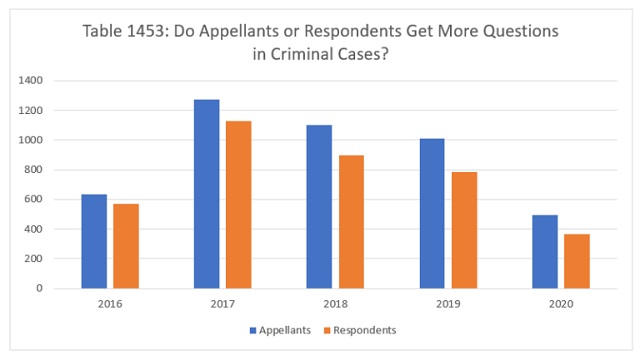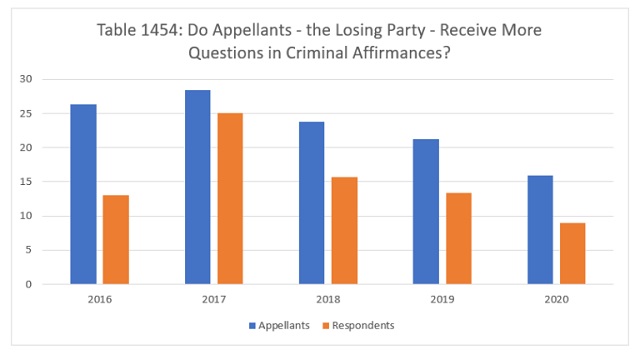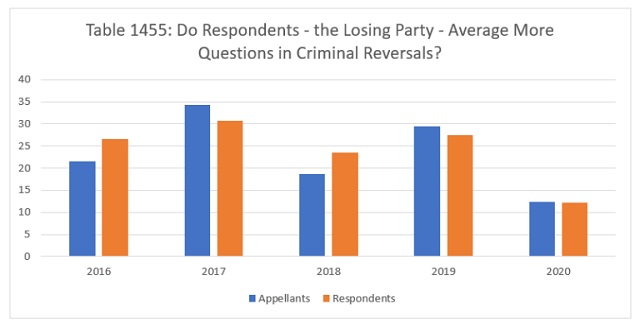Yesterday, we surveyed the academic literature in oral argument analytics and then reviewed the data for 2016-2020 civil cases from the Supreme Court. Today, we're looking at the criminal docket.
Between its earliest posted arguments in 2016 and the end of August, the Court asked 8,256 questions in criminal, quasi-criminal, juvenile and mental health matters: 4,514 of appellants and 3,742 of respondents. In every individual year during that period, questions to appellants have predominated.

Next, we separate out the affirmances – winning respondents versus losing appellants. Appellants averaged more questions each year.

Finally, we review the data for reversals. Curiously, losing respondents only received more questions than appellants in two of five years.

Join us back here next week as we continue our review of the past five years of oral arguments.
Originally published by California Supreme Court Review
The content of this article is intended to provide a general guide to the subject matter. Specialist advice should be sought about your specific circumstances.

